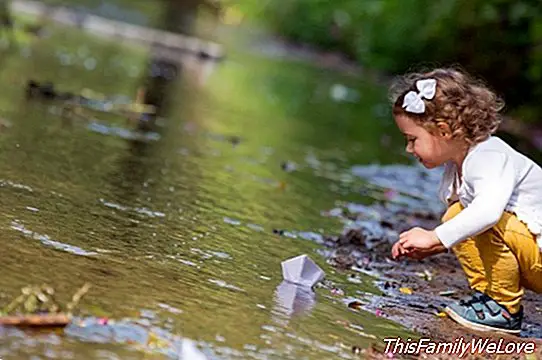Free play, why is it so good for children?

Let's face it: we are afraid of free time. It looks a lot like horror vacui in art. It gives us the impression that if for a while we have nothing to do, we are not being productive and unproductiveness seems to us the worst way. But on many occasions, that having nothing to do is the best way to gain momentum and reach further because Boredom fosters thinking and thought, great ideas.
The problem comes when it comes to our children, small or older, because in this case it does not matter: "boredom, thought, great ideas" is a trinomial that sounds enriching, but if we look closely at this peculiar equation, we will realize that "great ideas" only defines the magnitude of what is imagined, does not speak of its goodness or badness. Therefore, we do not really want our children to get bored not so much because of the fact that they do not get bored, but because it scares us greatly that, when bored, they come up with a terrible idea of a firefighter.
Therefore, without realizing, when they get bored, we justify them to go immediately to the first digital device that they have in hand, or that they plug a long time to a TV that, although it is not bad, is almost always inconsequential. In this modern society, the fear of boredom leaves our children in the dangerous hands of the digital and audiovisual nannies that come in the form of Youtube videos, Netflix series, Instagram photos and WhatsApp messages in industrial quantities.
The true sense of boredom needs real boredom, not a digital "hobbies". Only then will your brain start working. That's why the free time that generates free play is so good. But limited free time, because if limited, we will also limit the arrival of bad ideas and encourage good ideas.
What do we get with this time of free play? If you are alone, we will enhance your creativity and imagination. The autonomous game improves the independence of children and helps them to manage their attachment correctly. With all this, their self-control is being favored because they are able to adapt to a situation that is not the best.
In the case of children and adolescents surrounded by others, free play will allow the development of emotional skills with a much greater success than that achieved by working these concepts in the classroom. In the free relationship with others, in which they have to propose plans, listen to others, reach a consensus, establish rules of operation, manage compliance, are put into play skills that will be essential for the rest of his life.
Should we intervene if they reach a difficult point of resolution? My bet is that, as far as possible, except to prevent "blood from reaching the river", it is best not to intervene. I think that in this way they learn to solve their own conflicts.
In education, much emphasis is placed on the importance of the good example of parents, but it also has a key educational significance, the bad example of others, which allows them to teach in the head of others.
Because when they participate in free play, they tend to acquire more critical thinking that helps them discern what is right and what is wrong, who behaves well and who is wrong. So, although we must not intervene in their game, we do have to make an effort to know what they have gotten out of that shared time in which their true personality is being forged.




